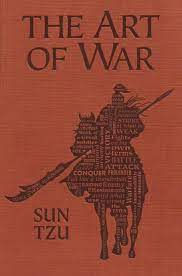Hirschi’s Social Control Theory
- Haison Piggangay
- Feb 11, 2023
- 2 min read
Updated: Feb 15, 2023

Hirschi's Social Control Theory, also known as Social Bond Theory, is a criminological theory that explains why individuals conform to social norms and laws. Developed by Travis Hirschi in the 1970s, the theory states that individuals are less likely to engage in criminal behavior if they have strong bonds to society, such as attachment to family and friends, commitment to school or work, involvement in conventional activities, and belief in moral values.
According to the theory, individuals with strong bonds to society are less likely to engage in criminal behavior because they have more to lose. For example, suppose an individual has strong attachments to family and friends. In that case, they are less likely to engage in criminal behavior because they do not want to risk damaging those relationships. Similarly, suppose an individual has a solid commitment to school or work. In that case, they are less likely to engage in criminal behavior because they do not want to jeopardize their future prospects.
The theory also suggests that moral values and beliefs play a crucial role in shaping behavior. Individuals with strong beliefs in moral values are less likely to engage in criminal behavior because they are motivated to act according to those values. For example, individuals who believe theft is wrong are less likely to commit theft because they do not want to violate their moral beliefs.
Hirschi's Social Control Theory has been widely studied and has been found to have some support. It has also been used to inform the development of programs and interventions to reduce crime, such as mentoring programs, after-school activities, and community-based initiatives. Involving the church in police-community relations activities can positively impact trust and understanding between the police and the community. The church has a unique role in promoting peace and justice in society. This can be achieved through its involvement in community initiatives and outreach programs. [1]
Hirschi's Social Control Theory is also one of the bases of the "KASIMBAYANAN" project of the current Chief, PNP. He believes that through this, he can minimize crime in the community. I have observed the advantage of engaging with KASIMBAYANAN, including the Squad Weekly Interactive Meeting or SWIM. One of the main benefits of involving the church in police-community relations activities is that it can help to bridge the gap between the police and the community. Pastors and church leaders are often viewed as trusted community leaders. Their involvement can help build bridges between the police and the community by promoting compassion, forgiveness, and understanding.
Reference:
C. (2022a, February 4). Hirschi’s Social Control Theory of Crime - Simply Sociology. https://simplysociology.com/hirschi-control-theory-crime.html





Comments